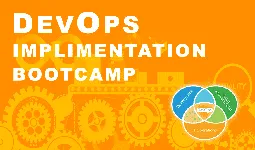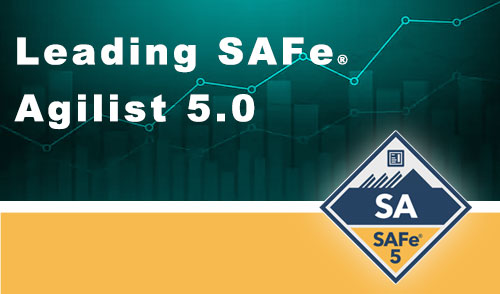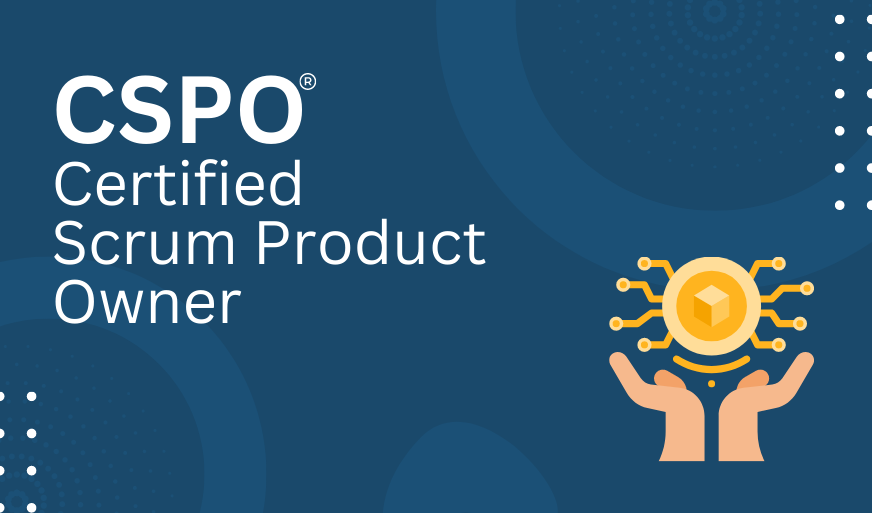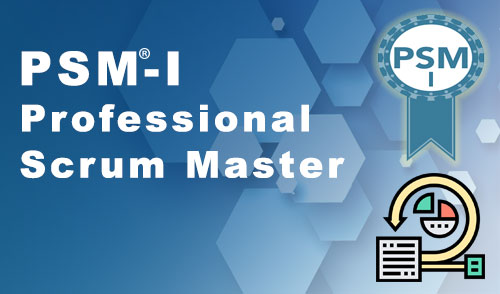10 best practices for effective DevOps in 2024
-
 By Aradhya Kumar
By Aradhya Kumar - Published on Jul 11 2023

Table of Contents
- Introduction to DevOps Best Practices in 2024
- Top 10 DevOps Best Practices For Effective Implementation in 2024
- DevOps Best Practice 1 - Testing Automation
- DevOps Best Practice 2 - Logging And Monitoring
- DevOps Best Practice 3 - Continuous Integration
- DevOps Best Practice 4 - Regulation Compliance
- DevOps Best Practice 5 - Information Sharing
- DevOps Best Practice 6 - Security
- DevOps Best Practice 7 - Ensure Continuous Feedback Among Teams
- DevOps Best Practice 8 - Monitor DevOps Performance
- DevOps Best Practice 9 - Employ Benchmarking
- DevOps Best Practice 10 - Use DevOps Tools That Work With More Than One Cloud
- Conclusion
Introduction to DevOps Best Practices in 2024
DevOps best practices have gained enormous fame in the last few years by empowering organizations to accomplish scale. These days, organizations are increasingly partnering with reliable IT outsourcing service providers for programming and software development.
DevOps extends support to projects and maintains secure processes with software service providers, enhancing the efficiency of project execution and delivery. It works in conjunction with Agile principles, offering next-level collaboration and communication between organizations, programming specialists, and software service providers.
A Puppet study found that IT departments implementing DevOps best practices deploy programming software 200 times quicker on average than those not utilizing DevOps.
In short, these DevOps practices focus on teamwork and practices like continuous testing and conveyance. Some entrepreneurs feel that transforming from a conventional method for building technology by implementing DevOps best practices is time-consuming.
Discovering ways to improve business efficiency is challenging. For software and app development companies, streamlining the process for customers is crucial. DevOps methodologies and best practices offer an excellent solution to reduce errors and delays in projects. DevOps emphasizes teamwork, continuous testing, and delivery.
Some entrepreneurs find the transition time-consuming, but the benefits are worth it. Studies indicate that 65% of organizations that adopt DevOps best practices experience improved program quality.

Successful implementation requires defining parameters and adhering to the DevOps process flow. Overall, DevOps best practices validate product growth and effortless maintenance.
Top 10 DevOps Best Practices For Effective Implementation in 2024
In today's digital landscape, the adoption of DevOps practices has become increasingly crucial for organizations striving to stay competitive and deliver software at a rapid pace. As remote work continues to be the prevailing work arrangement, it is essential to understand the best practices that can empower teams to effectively implement DevOps in 2024.

This article presents the top 10 DevOps best practices 2024 for successful DevOps implementation, providing valuable insights to help organizations streamline their development processes, enhance collaboration, and achieve greater efficiency in the dynamic world of software delivery.
DevOps Best Practice 1 - Testing Automation
One of the greatest concerns you and your group should have when building software or application is keeping the code clean and bug-free. While this may seem like a moderately simple and clear procedure, it is definitely not.
Attempting to physically test each bit of code composed for another program isn't just time-consuming, it is also inefficient. This is the reason for embracing both DevOps and testing automation as a need and priority in implementing DevOps best practices.
Permitting software projects to deal with the unremarkable coding tasks engaged with the software development procedure can be useful. This not just helps you keep away from normal human errors, but it additionally enables your engineers to concentrate on other tasks.
When it comes to choosing the best DevOps software, there are several top contenders in the market. Tools like Jenkins, GitLab, Docker, Kubernetes, and Ansible have consistently proven to be reliable and effective in automating workflows, facilitating collaboration, and ensuring seamless integration across development and operations teams.
DevOps Best Practice 2 - Logging And Monitoring
In considering DevOps best practices, most organizations hold onto DevOps as an approach to accelerate the software and application development process, they have to avoid losing sight of the significance of monitoring and logging.
As your development project progresses coping with DevOps practices, you have to ensure by DevOps testing best practices and streamlining. By observing the entirety of the code being developed and logging any errors discovered, you can address functionality and operational issues before they harm your program.
DevOps Best Practice 3 - Continuous Integration
Previously, development projects were separated into huge lumps of work. This meant that the developers would work away on long sections of code for quite a long time.
Assuming this was one of the best DevOps practices to take on a development project, they saw that their work would consistently be filled with mistakes and bugs.
The nonstop mix model permits engineers to incorporate their work promptly into the general tasks on various occasions a day or week. By grasping consistent coordination in DevOps best practices, you can guarantee the DevOps procedure is fruitful. The continuous integration tools in devops maintains proper system of work.
Continuous Integration is a critical practice in DevOps, ensuring that code changes are frequently merged into a shared repository. Most developers like the model of continuous integration DevOps since it permits them to mitigate risks and discover issues in a hurry.
DevOps Best Practice 4 - Regulation Compliance
Even after the implementation of the best DevOps, administrative compliance will, in any case, be pertinent and developers won't have root access to production servers. Rather, they will utilize identical mechanisms that oversee production and non-production servers and will limit potential issues implementing DevOps best practices.
DevOps Best Practice 5 - Information Sharing
Keep informed about all the progress across the organization. Status updates, failures, and other notifications can help an organization stay on the same page and increase productivity, speed, and efficiency.
DevOps Best Practice 6 - Security
In order to practice effective DevOps, make sure you address security sooner in the development cycle i.e., IT security teams must be involved from the beginning. DevOps security best practices must be an integral part of the product and cannot be looked like something which can be addressed later on.
DevOps Best Practice 7 - Ensure Continuous Feedback Among Teams
To ensure continuous feedback among the teams to spot issues, gaps and inefficiency you’ll need feedback loops to automate communication that processes the needs and support your chosen DevOps tools.
The right DevOps tools will identify the problem or issue using automated or manual mechanisms, and tag the issue so that the developers understand the reason for the occurrence of the issue or problem.
DevOps Best Practice 8 - Monitor DevOps Performance
Ultimately, by applying DevOps best practices, the goal of DevOps is to deliver faster production mechanisms. This can be improved by monitoring the performance of DevOps, with performance indicators such as deployment time, failure rate, etc.
This can help the organizations to continuously monitor and find out the areas to be optimized which in turn enhances the delivery speed. This should be practiced in order to make DevOps successful.
DevOps Best Practice 9 - Employ Benchmarking
It is always recommended to do some benchmarking for the latest update of DevOps good practices created by the DevOps team.
Understand the infrastructure requirements and also make sure you do performance testing at this stage it helps you to gain deeper insights as to what updates of DevOps best practices will be required in the future.
DevOps Best Practice 10 - Use DevOps Tools That Work With More Than One Cloud
DevOps are available as a part of a cloud platform. Most organizations prefer most used devops tools, which can be found in the larger cloud platform. But, these DevOps practices may limit and lock DevOps on a single cloud platform, hence the organizations can deploy applications on various clouds in order to avoid the limited options.
Conclusion
Software and applications act as platforms for companies to interact with their customers. This implies that the software should have enough operational efficiency to provide an increased user experience and ensure the delivery of effective communication. That said, applying the 10 DevOps best practices play a prominent role in software development.
The DevOps and continuous integration model helps in ensuring better integration of software and communication. DevOps as a service has become a culture for many software development companies, these DevOps practices permit incremental implementations so that the organizations may not make the required updates from the beginning. Hence, these DevOps best practices can be adopted by organizations to ensure efficient performance.
To learn about DevOps best tools, DevOps methodologies, DevOps process flow, and DevOps implementation methods for better business, you can take up the DevOps Certification Training offered by Sprintzeal and earn a certification that’ll enhance your career.
To get full details about the DevOps certification training in the online, classroom, and live virtual mode of study, reach us at Click Here or chat with a course expert to get instant help.
Enhance your knowledge and stay at the forefront of DevOps best practices by subscribing to Sprintzeal’s newsletters.
Receive valuable insights, expert tips, and industry updates straight to your inbox, empowering you with the knowledge you need to excel in your DevOps journey.
Subscribe to our Newsletters
Popular Programs
PSM® - Professional Scrum Master Certification
Live Virtual Training
- 4.7 (75 + Ratings)
- 3k + Learners
Trending Posts
Scrum Interview Questions and Answers 2024
Last updated on Feb 12 2024
Importance of Procurement Management Software in Modern Business
Last updated on Feb 28 2025
Data Processing - A Beginner's Guide
Last updated on Aug 18 2022
Product Life Cycle Strategies: Key to Maximizing Product Efficiency
Last updated on Feb 18 2025
DevOps Career Guide 2024
Last updated on Jul 20 2022
CSM vs. PSM - Which Scrum Certification is Better?
Last updated on Mar 14 2023
Categories
- Agile Management 54
- AI and Machine Learning 42
- Big Data 53
- Business Management 51
- Cloud Computing 44
- Digital Marketing 56
- Information Security 8
- IT Hardware and Networking 17
- IT Security 103
- IT Service Management 29
- Leadership and Management 1
- Microsoft Program 2
- Other 43
- Programming Language 31
- Project Management 162
- Quality Management 75
- Risk Management 8
- Workplace Skill Building 2
Trending Now
List Of Traits An Effective Agile Scrum Master Must Possess
ArticleDevOps Vs Agile Differences Explained
ArticleDevops Tools Usage, and Benefits of Development Operations & VSTS
ArticleAgile Scrum Methodology - Benefits, Framework and Activities Explained
ArticleGuide to Agile Project Management 2024
ArticleGuide to Becoming a Certified Scrum Master in 2024
ArticleWhy Should You Consider Getting a Scrum Master Certification?
ArticleCSM vs CSPO: Which Certification is Right for You?
ArticleAgile Manifesto - Principles, Values and Benefits
ArticleAgile Methodology Explained in Detail
ArticleAgile Project Management Explained
ArticleEssential Tools for Agile Project Management 2024
ArticleEverything about Scrum Methodology
ArticleScrum Workflow - A Step by Step Guide
ArticleLatest Agile Interview Questions and Answers To Look For In 2024
ArticleScrum Interview Questions and Answers 2024
ArticleTop Scrum Master Responsibilities 2024 (Updated)
ArticleProduct Life Cycle in Marketing: Essential Strategies for Product’s Success
ArticleDevOps Engineer Interview Questions - Best of 2024
ArticleDevOps Engineer - Career path, Job scope, and Certifications
ArticleBusiness Agility Guide - Importance, Benefits and Tips
ArticleScrum vs Safe – Differences Explained
ArticleCSM vs. PSM - Which Scrum Certification is Better?
ArticleSAFe Implementation Roadmap Guide
ArticleAgile Release Plan Guide
ArticleAgile Environment Guide
ArticleAgile Coaching Guide - Best Skills for Agile Coaches
ArticleAgile Principles Guide
ArticleSAFe Certifications List - Best of 2024
ArticleAgile Prioritization Techniques Explained
ArticleScrum Ceremonies Guide
ArticleProduct Owner Certifications List
ArticleScrum of Scrums Guide
ArticleWhat is DevSecOps and its Importance
ArticleData Processing - A Beginner's Guide
ArticleDevOps Career Guide 2024
ArticleStakeholder Engagement Levels Guide
ArticleScrum Master Career Path Explained
ArticleScrum Career Path Explained
ArticleTop Git Interview Questions and Answers [Updated 2024]
ArticleA guide to Agility in cloud computing
ebookProduct Roadmap: An Ultimate Guide to Successful Planning and Implementation
ArticleDMAIC Methodology - The Ultimate Guide
ArticleProduct Life Cycle Strategies: Key to Maximizing Product Efficiency
ArticleScrum Master Salary Trends in 2024
ArticleProduct Life Cycle Model: A Guide to Understanding Your Product's Success
ArticleWhat is a Product Owner - Role, Objectives and Importance Explained
ArticleSuccessful Product Strategies for Introduction Stage of Product Life Cycle
ArticleUnlocking Career Opportunities in Product Management: Your Roadmap to Success
ArticleSaturation Stage of Product Life Cycle: Complete Guide
ArticleCutting-Edge Technology of Google Cloud
ArticleHow to Write an Executive Summary for a Business Plan?
ArticleImportance of Procurement Management Software in Modern Business
Article





.webp)










